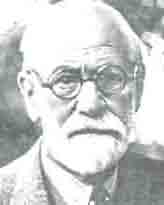People
Pioneers
Sigmund Freud (1856-1939)
Sigmund Freud (1856-1939) [Famous Smoking Pipes]. Austrian psychiatrist, founder of psychoanalysis. Born in Moravia, he lived most of his life in Vienna, receiving his medical degree from the University of Vienna in 1881.
His medical career began with an apprenticeship (1885-1886) under J. M. Charcot in Paris, and soon after his return to Vienna he began his famous collaboration with Josef Breuer on the use of hypnosis in the treatment of hysteria.
Their paper, "On the Psychical Mechanism of Hysterical Phenomena" (1893, tr. 1909), more fully developed in "Studien über Hysterie" (1895), marked the beginnings of psychoanalysis in the discovery that the symptoms of hysterical patients -- directly traceable to psychic trauma in earlier life -- represent undischarged emotional energy. The therapy, called the cathartic method, consisted of having the patient recall and reproduce the forgotten scenes while under hypnosis.
The work was poorly received by the medical profession, and the two men soon separated over Freud’s growing conviction that the undefined energy causing conversion was sexual in nature.
Freudian theory has had wide impact, influencing fields as diverse as anthropology, education, art, and literary criticism.
He was one of the most prominent honorary members of the Hellenic Society For Psychical Research which was established by Angkelos Tanagras {Άγγελος Τανάγρας} [People].
Sigmund Freud (1856-1939)

04-23-2004